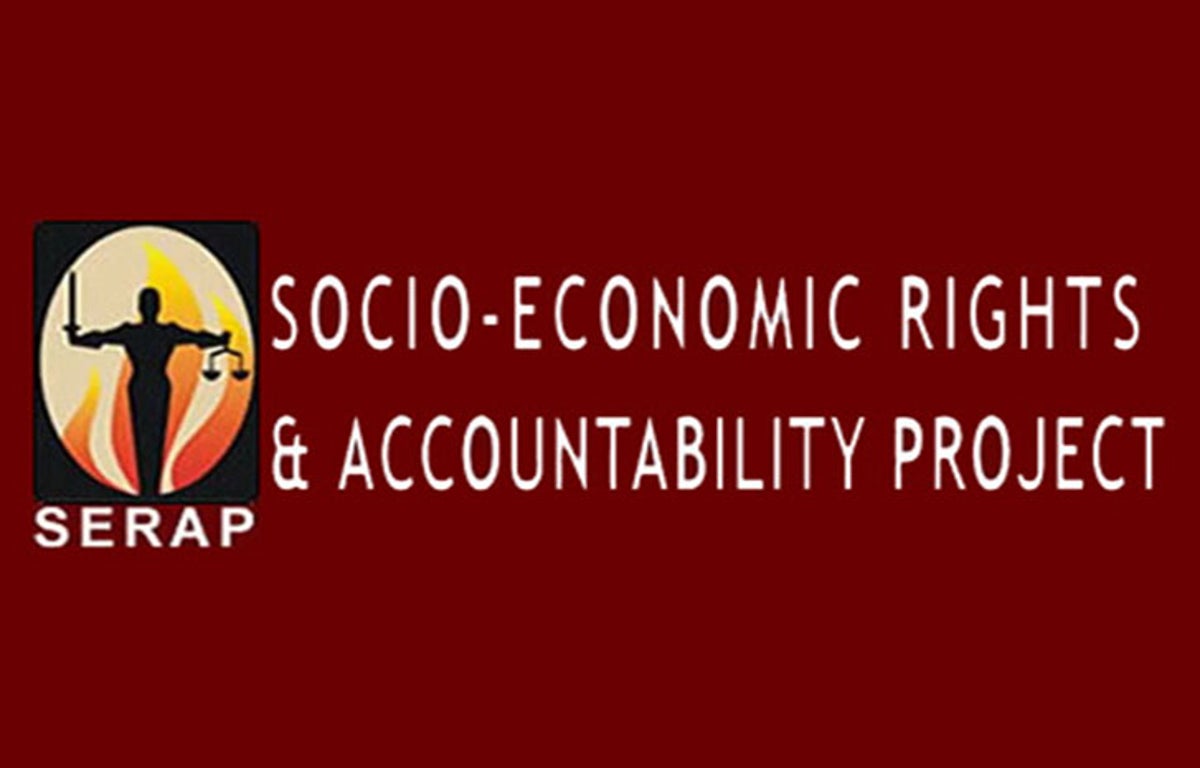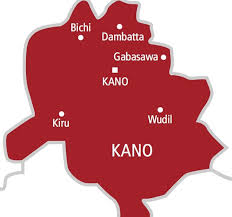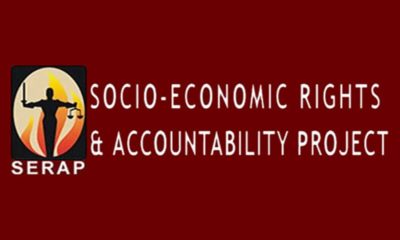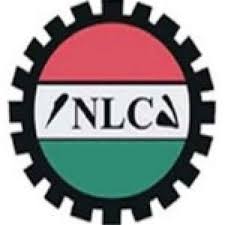NEWS
SERAP Sues NNPC Over Missing $2.04bn, N164bn Oil Revenues

The Socio-Economic Rights and Accountability Project (SERAP) has filed a lawsuit against the Nigerian National Petroleum Company Limited (NNPC Ltd) over alleged missing USD$2.04 billion and N164 billion oil revenues.
According to the SERAP, the suit followed allegations documented in the recently published 2020 audited report by the Auditor General of the Federation that the NNPC Ltd failed to remit the money into the Federation Account.
A statement from the SERAP over the weekend has it that that the money may have been diverted.
In the suit number FHC/ABJ/CS/549/2024 filed last Friday at the Federal High Court in Abuja, SERAP is seeking: “an order of mandamus to direct and compel the NNPC to account for and explain the whereabouts of the missing USD$2.04 billion and N164 billion oil revenues, as documented in report by the Auditor-General.”
The SERAP is seeking: “an order of mandamus to compel the NNPC to hand over suspected perpetrators to the Independent Corrupt Practices and Other Related Offences Commission (ICPC) and the Economic and Financial Crimes Commission (EFCC) for investigation and prosecution.”
The anti-corruption crusader is also seeking: “an order of mandamus to compel the NNPC to ensure the full recovery and remittance of the missing USD$2.04 billion and N164 billion into the Federation Account.”
In the suit, the SERAP is arguing that: “There is a legitimate public interest in providing the details sought. The NNPC has a legal responsibility to account for and explain the whereabouts of the disappeared money.
“The missing oil revenues have further damaged the already precarious economy in the country and contributed to high levels of deficit spending by the government.
“Without the full recovery and remittance of the missing USD$2.04 billion and N164 billion oil revenues, the dire economic situation may worsen and Nigerians will continue to be denied access to basic public goods and services.”
According to the SERAP, “the Auditor-General has for many years documented reports of disappearance of public funds from the NNPC. Nigerians continue to bear the brunt of these missing oil revenues.”
The suit was filed on behalf of the SERAP by its lawyers, Kolawole Oluwadare and Kehinde Oyewumi, read in part: “The alleged missing oil revenues reflect a failure of NNPCL accountability more generally and are directly linked to the institution’s continuing failure to uphold the principles of transparency and accountability.
“The failure by the NNPC to account for and explain the whereabouts of the disappeared money is a grave violation of the provisions of the Nigerian Constitution 1999 [as amended], the Freedom of Information Act, national anticorruption laws, and the country’s obligations under the UN Convention against Corruption.
“Had the NNPCL and its subsidiaries accounted for and remitted the disappeared public funds into the Federation Account, it is likely that more funds would have been allocated to the fulfillment of economic and social rights of Nigerians, such as increased spending on public goods and services.
“The missing oil revenues have also impeded Nigerians’ ability to enjoy their economic and social rights, and denied them access to essential public goods and services, especially at the time of cost of living crisis in the country.
“Nigerians have the right to know the whereabouts of the disappeared oil money. Ensuring transparency and accountability in the management of oil revenues would advance the right of Nigerians to restitution, compensation and guarantee of non-repetition.
“According to the recently published 2020 audited report by the Auditor General of the Federation (AGF), the NNPC failed to remit over USD$2 billion and N164 billion oil revenues into the Federation Account.
“The Auditor-General fears that the money may have been diverted into private pockets, denying the government the funding needed to carry out its activities.
“The NNPCL reportedly failed and/or refused to remit N151,121,999,966. The NNPCL without any justification deducted the money from the oil royalties assessed for 2020 by the Department of Petroleum Resources (DPR) now Nigerian Upstream Petroleum Regulatory Commission (NUPRC).
“The NNPCL has failed to account for the missing public funds. The Auditor-General wants the money recovered and remitted into the Federation Account.
“The NNPCL also failed to remit USD$19,774,488.15 collected as government revenue into the Federation Account. The Auditor-General wants the NNPCL to account for the money, recover and remit it into the Federation Account, and to hand over those suspected to be involved to the ICPC and the EFCC.
“The NNPCL also reportedly failed to account for USD$2,021,411,877.47 and N13,313,565,786.49 of royalties collected from crude oil and gas sales and gas flare.
“The Auditor-General wants the public funds fully recovered and remitted into the Federation Account and for those suspected to be responsible for the missing public funds to be handed over to the ICPC and the EFCC.
“Despite the country’s enormous oil wealth, ordinary Nigerians have derived very little benefit from oil money primarily because of widespread grand corruption, and the entrenched culture of impunity of perpetrators.
“SERAP notes that Section 15(5) of the Nigerian Constitution 1999 (as amended) requires public institutions to abolish all corrupt practices and abuse of power.
“Section 16(2) of the Nigerian Constitution further provides that, ‘the material resources of the nation are harnessed and distributed as best as possible to serve the common good.’
“Section 13 of the Nigerian Constitution 1999 [as amended] imposes clear responsibility on the NNPCL to conform to, observe and apply the provisions of Chapter 2 of the constitution.
“Paragraph 3112(ii) of the he Financial Regulations 2009 provides that, ‘Where a public officer fails to account for government revenue, such officer shall be surcharged for the full amount involved and such officer shall be handled over to either the Economic and Financial Crimes Commission (EFCC) or the Independent Corrupt Practices and Other Related Offences Commission (ICPC).’
“Nigeria has made legally binding commitments under the UN Convention against Corruption to ensure accountability in the management of public resources. Articles 5 and 9 of the UN Convention against Corruption also impose legal obligations on the NNPCL to ensure proper management of public affairs and public funds. These commitments ought to be fully upheld and respected.”
No date has been fixed for the hearing of the suit.
NEWS
Kano Police Warn Residents Of Imminent Terror Attack Threats

The Kano State Police Command has warned residents of a potential terror attack, targeting public gatherings in strategic locations across the state.
In a statement issued on Friday, the command’s Public Relations Officer, SP Abdullahi Haruna, disclosed that intelligence reports indicated suspected terrorists were planning to carry out attacks.
“The Kano State Police Command, in liaison with other security agencies, has received intelligence reports of suspected terrorists planning to launch attacks on public gatherings in strategic locations within Kano State.
READ MORE: Savannah Energy Provides Unaudited FY 2024 Trading Updates
“In response, we hereby urge residents to exercise caution and avoid crowded places and environments until further notice as a preventive measure to enable security operatives to identify and dislodge possible attackers,” the statement read.
To address the threat, the police command has enhanced security arrangements across the state. SP Haruna revealed that specialized units, including the Explosive Ordinance Disposal (EOD) and the Chemical, Biological, Radiological, and Nuclear (CBRN) teams, have been deployed to strategic locations and are on high alert.
“A team of experts from the command’s Explosive Ordinance Disposal, Chemical, Biological, Radiological, and Nuclear units have been deployed to strategic locations and are on high alert.
“The unit can be contacted through: 08169884988 or 07067157218 for report of suspicious persons or item(s),” Haruna stated.
Residents have been urged to remain vigilant and report any suspicious activities to the nearest police station or contact the command through the designated hotlines.
“The command remains committed to protecting lives and properties as well as maintaining law and order in Kano State.
“We appreciate the support and cooperation of the good people of Kano State and urge everyone to remain vigilant. Your vigilance and cooperation are crucial in ensuring public safety,” the statement concluded.
NEWS
Ifon-Ilobu-Erin Osun Land Disputes: Osun Constitutes A 100-Member Boundary Resolution Committee

In the bid to resolve the incessant land disputes between the communities of Ifon, Ilobu and Erin Osun, the Governor of Osun State, Senator Ademola Adeleke has constituted an enlarged 100-member high powered land crisis resolution committee in which each of the affected communities has 25 representatives, and the state government represented by 25 members.
The Osun State Commissioner for Information and Public Enlightenment, Oluomo Kolapo Alimi made the disclosure in a statement in Osogbo, on Friday.
He revealed that the Ataoja of Osogbo land, Oba Jimoh Adetunji Olanipekun Larooye is the Chairman of the Committee, while a retired judge of Osun State Judiciary and Chairman, Osun State Boundary Commission, Justice Moshood Adekunle Adeigbe, would serve as the Co-Chairman.
According to Alimi, Gov Adeleke put in place the Committee with a view to bringing a lasting end to the incessant land disputes among the three affected communities.
ALSO READ: Leadership Newspaper Backs Adeleke For Second Tenure, Names Him ‘Gov Of The Year’
It was gleaned from the statement that there were four other traditional rulers on the panel, including His Royal Majesty; Oba Abioye Oyebode, the Olokuku of Okuku, His Royal Majesty; Oba Adams Iyiola Bamidele Yusuf, the Oloba of Oba Oke, His Royal Majesty; Oba Adekeye Oyedare, the Oloyan of Oyan and His Royal Majesty, Oba Akeem Ogungbamgbe,The Owaloko of Iloko-Ijesha.
Other members are Umar Abba Mohammed, Osun State Commissioner of Police, Ayoola Kehinde, Osun State Director, Department of State Services( DSS) Brigadier General, Aliu Mohammed, Commander E.C.C, Ede, Sotiyobo Igbalawola, Osun State Commander, Nigeria Security and Civil Defence Corps( NSCDC), Anthony Chikezie, Commander, Immigration Service, Osun State, Adekunle Omoyele, Osun State Commander, Amotekun Corps, and Special Adviser to Osun State Governor on Security, Barrister Dare Ojo.
Also on the enlarged Committee, where members are enjoined by Gov Adeleke to bring in their wealth of experience to bear on the highly critical assignment, are the Chairman, NBA Osogbo branch, Yemi Abiona, Esq; the Chairman, NBA, Ikirun, Niyi Akinsola, Esq; the Chairman, NBA, Ile Ife, Tope Olajoko, Esq; the Chairman, NBA, Ilesha, Raymond Oki, Esq; Others appointed to serve on the Ifon- Ilobu- Erin Osun Peace Resolution Committee are; Soladoye Abioye, the Surveyor General of Osun State – Dr Sodiq Olohunde, Office of Chief of Staff to the Governor, Marufat Adekemi Bello, Permanent Secretary , Ministry of Justice – Femi Ogundun,- Permanent Secretary, Ministry of Local Govt and Chiertincy Affairs, Dr Fritz Mobolaji Olaoye, Permanent Secretary, Ministry of Lands and Physical Planning.
Completing the list of the Committee members are Comrade Wasiu Ajadosu, Osun NUJ Council Chairman, Comrade Waheed Lawal, Osun Civil Society Coalition and Comrade Saka Mao, a Public Affairs Analyst
The statement has it that Gov Adeleke, will on Tuesday, the 28th of January, 2025 perform the swearing in ceremony of the 100-member enlarged Ifon, Ilobu, Erin Osun Land Crisis Resolution Committee, at the Multi purpose hall of Local Government Service Commission, State Government Secretariat, Abere Osogbo by 11:00am.
NEWS
Okpebholo Moves To End Indiscriminate Parking, Gridlock In Edo State

Edo State Governor, Senator Monday Okpebholo, has charged the Managing Director of the Edo State Traffic Control Management Agency (EDSTMA), Engr. Stainless Ijeghede on indiscriminate parking and traffic gridlock, especially in market areas.
According to a statement in Benin City on Friday, by Chief Press Secretary to Edo State Governor, Fred Itua, his principal gave the charge while decorating Ijeghede with his new rank as the head of EDSTMA.
He noted that while addressing the new Managing Director and his personnel at the Exco Chambers in Government House, Gov Okpebholo pointed out that the agency should do its job well by ensuring free flow of traffic across the state.
He called on Ijeghede and men of the agency to ensure they checked indiscriminate parking of vehicles and buses, especially in market areas.
“Edo State belongs to all of us and whatever we are doing, we should do it with care not to harm anybody. I appeal to EDSTMA to ensure that the city is well kept because whenever I drive round town, I see vehicles everywhere as the city is not well kept.
“This is your primary assignment. You should ensure the city is well kept as vehicles park indiscriminately and they are causing obstruction. Traffic is not flowing as it should and it is causing serious gridlock. Is it that you are not doing your job well?
ALSO READ: Leadership Newspaper Backs Adeleke For Second Tenure, Names Him ‘Gov Of The Year’
“Is it that you are not doing your job well or because you have a new leader that is why traffic is not flowing, or because you don’t know your job?
“You people should wake up and keep the state clean. Make sure that vehicles are parked well especially in the market areas. Monitor markets very well as these areas are looking really unkempt with vehicles and buses parked indiscriminately, causing traffic gridlock. Edo people are worst hit. They suffer from this. Ensure free flow of traffic so that the people will be happy,” Governor Okpebholo emphasized.
The EDSTMA boss, thanked Gov Okpebholo for the opportunity to serve the people of Edo State and assured him of the loyalty of the agency.
He added that his men will do their job professionally and ensure that the is free flow of traffic across the state.























